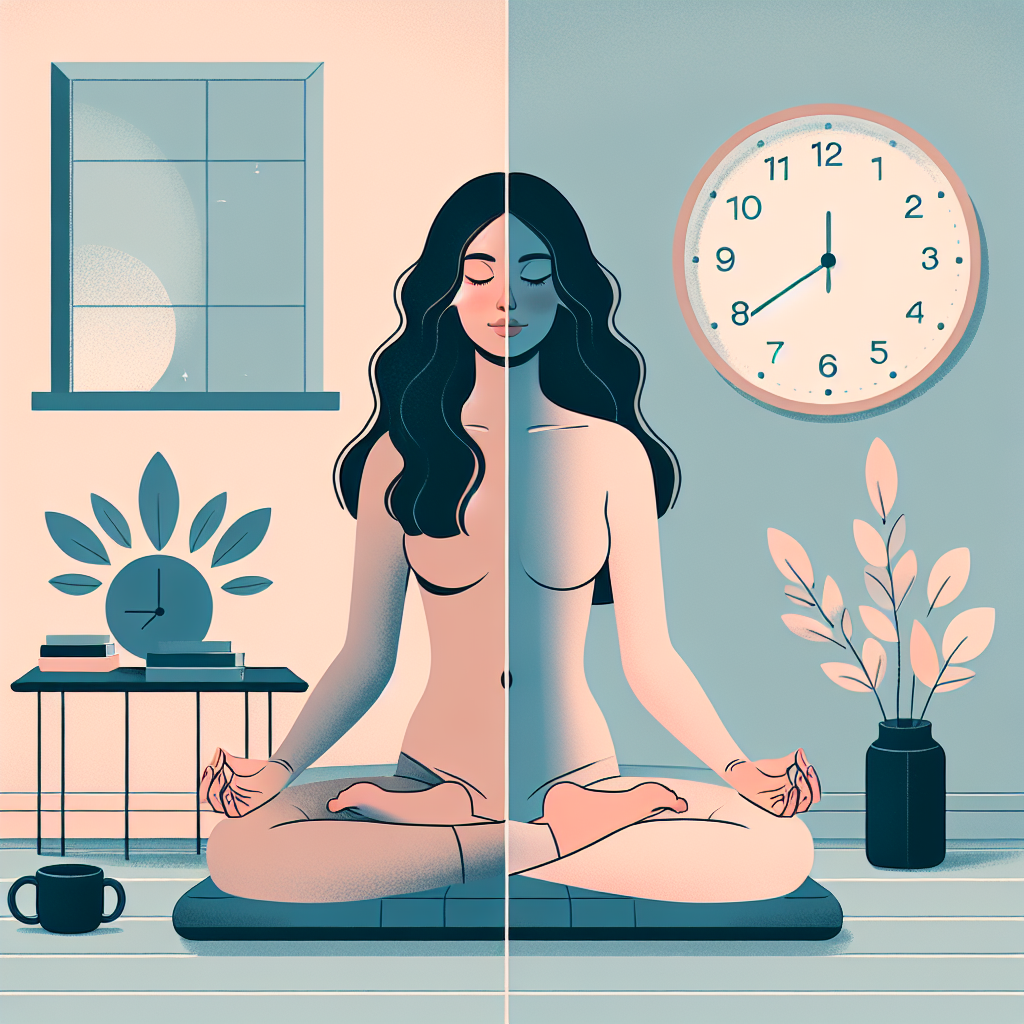
How and when to do meditation
The Art of Meditation: How and When to Do Meditation
Meditation is an ancient practice that has gained immense popularity in the modern world due to its numerous mental and physical health benefits. From reducing stress to enhancing concentration, the advantages of meditation can transform lives. However, many people struggle with the question: when and how should one start meditating? This article explores practical ways and optimal times to incorporate meditation into your daily routine, helping you to reap its vast rewards.
The Benefits of Meditation
Before diving into the specifics of how and when to do meditation, it’s helpful to understand why you should consider it in the first place. Here are some notable benefits:
- Stress Reduction: Meditation is known for its ability to lower stress levels by promoting relaxation.
- Enhanced Focus: Regular practice can improve attention span and concentration.
- Emotional Health: Meditation is linked to improved emotional well-being and increased self-awareness.
- Better Sleep: It can also help with insomnia by relaxing the mind and body.
- Physical Health: Meditation has been linked to lower blood pressure and improved heart health.
Types of Meditation to Consider
There are various forms of meditation that cater to different preferences and needs. Here are a few popular styles:
- Mindfulness Meditation: This involves paying attention to your thoughts and feelings without judgment.
- Guided Meditation: This type uses imagery and guided instructions, often through audio or apps.
- Loving-Kindness Meditation: Focuses on developing an attitude of love and kindness towards others.
- Transcendental Meditation: This requires the use of a mantra, allowing a person to settle into profound rest.
- Zazen: A form of seated meditation often practiced in Zen Buddhism focusing on breath and presence.
How to Start Meditating
Introducing meditation into your life doesn’t have to be overwhelming. Here is a step-by-step guide on how to get started:
- Set Your Intentions: Determine why you want to meditate. Is it for stress relief, improved focus, or emotional balance?
- Choose a Time: Consider when you can consistently set aside time for meditation.
- Find a Quiet Space: Select a calm environment with minimal interruptions. This will help you to focus better.
- Get Comfortable: Sit or lie down in a comfortable position. You can use a cushion or chair to support your body.
- Focus on Your Breath: Begin by taking deep breaths, allowing yourself to relax. Notice how your breath moves in and out.
- Be Kind to Yourself: If your mind wanders, gently bring your focus back to your breath without judgment.
- Start Small: Begin with just five minutes a day and gradually increase the duration as you feel more comfortable.
When to Meditate
Knowing when to meditate is crucial for creating a consistent practice. Here are some recommended times to incorporate meditation into your routine:
- Morning: Starting your day with meditation can set a positive tone and enhance mental clarity.
- Midday: Taking a break during lunch or work hours can help recharge your mind and manage stress.
- Evening: Meditating before bed can help you unwind and improve sleep quality.
Creating a Meditation Schedule
To make meditation a habitual practice, consistency is key. Here’s how to create an effective meditation schedule:
- Identify Your Available Times: Analyze your daily routine and pinpoint moments when you can dedicate time to meditate.
- Block Out Time: Treat your meditation session as an important appointment, setting reminders if needed.
- Be Flexible: Life can be unpredictable. Be open to adjusting your schedule while maintaining the habit.
Incorporating meditation into your life requires patience and dedication, but the journey can be enriching. Remember, consistency can lead to long-term benefits.
Overcoming Challenges in Meditation
Many beginners face challenges when starting their meditation journey. Here are some common obstacles and tips to overcome them:
Distraction
"The mind is a wonderful servant but a terrible master." - David Allen
It’s natural for your mind to wander during meditation. Here are some tips to help:
- Use guided meditations to keep your focus.
- Practice mindfulness in your everyday life to improve awareness.
- Don’t judge yourself for wandering thoughts; gently return your focus to your breath.
Time Management
Finding time to meditate amidst a busy schedule can feel daunting. Consider these suggestions:
- Start with short sessions and gradually increase the time.
- Incorporate meditation into an existing routine, like during a morning coffee or bedtime.
- Use apps to make meditation more accessible and engaging.
Physical Discomfort
If you experience discomfort during meditation, remember:
- Adjust your position. Use cushions or chairs for support.
- Try different meditation styles; standing or walking meditation is also valid.
- Be aware of your body and relax tense muscles.
Advancing Your Meditation Practice
Once meditation becomes a regular part of your life, you may want to deepen your practice. Here are some advanced techniques:
- Join a Group: Participating in group meditations can enhance focus and motivation.
- Explore Different Techniques: Experiment with various meditation styles to discover what resonates with you.
- Attend Workshops: Learning from experienced instructors can provide new insights and techniques.
- Apply Mindfulness in Daily Life: Bring the principles of meditation into your everyday activities, such as eating or walking.
Conclusion
Meditation is a powerful practice that can improve your overall well-being, offering benefits of stress relief, enhanced concentration, and emotional health. Understanding how and when to do meditation can be the key to unlocking your potential and finding inner peace. With dedication, patience, and a bit of exploration, you can cultivate a fulfilling meditation practice that complements your life and lets you live fully in the present moment.
Start small, stay consistent, and remember: the journey of meditation is a personal one, unique to each individual. Embrace the process, and you may just find that it changes not only your mindset but your entire perspective on life.
By Guest, Published on October 17th, 2024